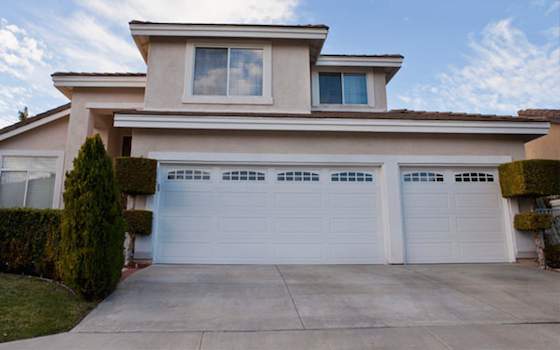- MENU
- HOME
- SEARCH
- WORLD
- MAIN
- AFRICA
- ASIA
- BALKANS
- EUROPE
- LATIN AMERICA
- MIDDLE EAST
- United Kingdom
- United States
- Argentina
- Australia
- Austria
- Benelux
- Brazil
- Canada
- China
- France
- Germany
- Greece
- Hungary
- India
- Indonesia
- Ireland
- Israel
- Italy
- Japan
- Korea
- Mexico
- New Zealand
- Pakistan
- Philippines
- Poland
- Russia
- South Africa
- Spain
- Taiwan
- Turkey
- USA
- BUSINESS
- WEALTH
- STOCKS
- TECH
- HEALTH
- LIFESTYLE
- ENTERTAINMENT
- SPORTS
- RSS
- iHaveNet.com: Home & Garden

Paving Options for Driveways
by Ron Geraci
Undoubtedly, most of our driveways are made from the ubiquitous asphalt, but there are more options out there than this classic standby.
Nothing against our fine tarred friend, but it gets frying-pan hot in the sun, can be slippery when wet and isn't popular with green-minded folks for its composition and water-runoff issues.
Luckily, there are interesting options that will improve your yard's curb appeal while providing years of smooth service.
Obviously, whether you're putting in a new driveway or repaving an old one, it's a fairly big job. A highly skilled DIYer (who doesn't mind renting heavy equipment like a Bobcat and grader for larger driveways) can tackle the project, or at least most it, but asking for itemized bids from local contractors is a wise move.
As with any project, the prep work is mission-critical; creating a level surface with proper base layers and good drainage will make all the difference in the beauty and longevity of your parking zone.
Here are a few cool, DIY-able alternatives to boring blacktop.
Oyster shells
A gravel driveway can be the simplest way to go for a DIYer, but you don't need to stick with granite and limestone. If you're the more creative type, you can use colored river stones, glass or ceramic pieces -- or even conch shells -- as gravel material. Expect to invest $5-$12 per square foot for exotic or decorative materials, while common granite will run around $2 per square foot. Unfortunately, gravel in all forms is difficult to clear of snow; It can also scatter and develop ruts.
Cobblestones
Or bricks. Or mosaics. Or black volcanic basalt slabs. All are possible when you pony up for pavers. These precast, individual blocks widely used in decorative walkways also make beautiful, extremely durable driveways (along with some exceeding poured concrete for longevity). Pavers come in limitless varieties, and many interlock for added stability. This is arguably the classiest driveway you can build, and doing so is not terribly difficult for the weekend warrior renovator. Pavers usually cost $10-$20 per square foot.
Concrete
Asphalt's most popular alternative is hard to beat for its mix of cost, versatility and durability. Framing and pouring concrete is a challenging DIY project, but its permanence can memorialize your work forever. And you can go well beyond generic blocks -- as far as your skill, time and budget permit. Concrete driveways can be stamped with creative designs, mottled with decorative stones or glass, stained with a variety of colors, finely polished … you name it. On the downside, most concrete varieties are prone to cracking, vulnerable to damage from poor drainage and stain easily (think motor oil). Costs can vary greatly by region -- expect to pay about $10 per square foot. If your driveway pulls extra duty as a work area or playground, where the occasional game of hoops or street hockey might break out, concrete may be your best choice.
Lush lawn
If Wimbledon can do it, why not you? Grass surfaces can be durable and are obviously an environmentally friendly choice. Such driveways use a grid or honeycomb arrangement (often constructed from water-permeable concrete or composite materials) to protect the root systems from being crushed. You can take on this project laying grass grids without heavy machinery. Costs vary depending on the technology being used, starting from about $2 per square foot.
Ron Geraci is a writer living in New York. In 2006, he built his own workbench, which doubles as a writing desk. It has six legs and can theoretically support 1320 pounds, though he's only personally tested it for about half of that load. From that desk, Ron has penned several books and contributed to many publications including Men's Health, WeightWatchers.com and AARP.
AUTOS | HOBBIES | EDUCATION | FAMILY | FASHION | FOOD & RECIPES | HOME DECOR | RELATIONSHIPS | PARENTING | PETS | TRAVEL | WOMEN
Article: Copyright ©,
Home & Garden: "Paving Options for Driveways"